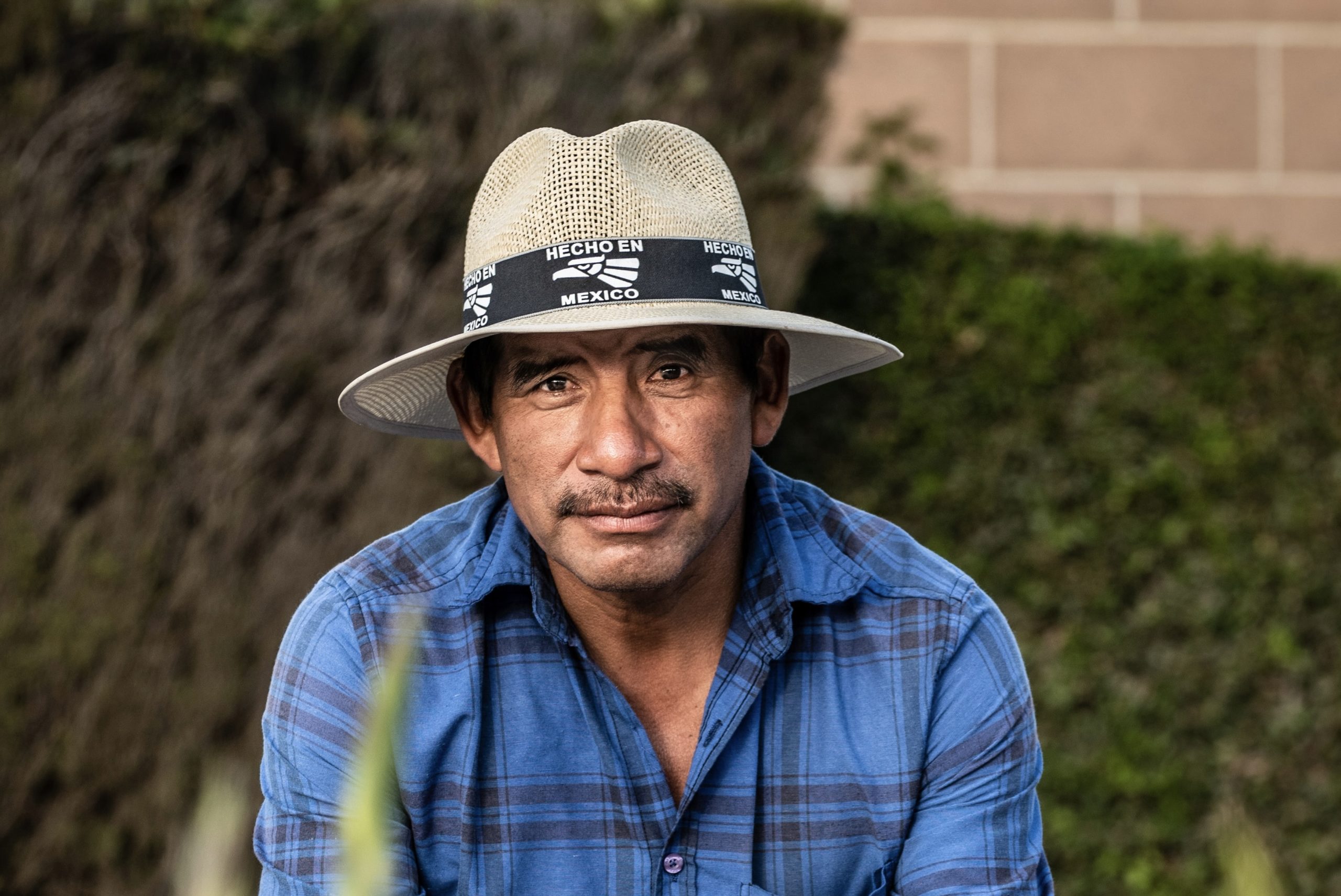 Peter was formerly employed by World Relief, serving as a microfinance advisor in Phnom Penh, Cambodia. He later managed Rwanda’s URWEGO Community Banking, which was recognized as the “best microfinance institution in Rwanda” by the United Nations. Peter also worked with CARE Zimbabwe and implemented fraud protection measures in cooperation with Harvard University’s Carr Center of Human Rights.
Peter received his undergraduate education in International Business from Messiah College and completed a Master’s Degree in Public Policy from Harvard’s Kennedy School, with a concentration in Political and Economic Development and Executive Education from Harvard Business School. He lectures nationwide on microenterprise development, social entrepreneurship and poverty eradication. Peter has co-authored the first faith-based book on microfinance with Phil Smith, “The Poor Will Be Glad” (Zondervan, 2009). Recently named one of WORLD Magazine’s “2011 Books of the Year,” “The Poor Will Be Glad” introduces ways the Church can become engaged in sustainable solutions to poverty. Peter resides in Lancaster, Pa., with his wife Laurel and their three children.
Currently under contract with Bethany House Publishers to write two more books, Peter blogs at www.peterkgreer.com. Follow him on Twitter at @peterkgreer.
What are the foundational truths from Scripture that shape the way that HOPE International conducts its work across the globe?
Peter was formerly employed by World Relief, serving as a microfinance advisor in Phnom Penh, Cambodia. He later managed Rwanda’s URWEGO Community Banking, which was recognized as the “best microfinance institution in Rwanda” by the United Nations. Peter also worked with CARE Zimbabwe and implemented fraud protection measures in cooperation with Harvard University’s Carr Center of Human Rights.
Peter received his undergraduate education in International Business from Messiah College and completed a Master’s Degree in Public Policy from Harvard’s Kennedy School, with a concentration in Political and Economic Development and Executive Education from Harvard Business School. He lectures nationwide on microenterprise development, social entrepreneurship and poverty eradication. Peter has co-authored the first faith-based book on microfinance with Phil Smith, “The Poor Will Be Glad” (Zondervan, 2009). Recently named one of WORLD Magazine’s “2011 Books of the Year,” “The Poor Will Be Glad” introduces ways the Church can become engaged in sustainable solutions to poverty. Peter resides in Lancaster, Pa., with his wife Laurel and their three children.
Currently under contract with Bethany House Publishers to write two more books, Peter blogs at www.peterkgreer.com. Follow him on Twitter at @peterkgreer.
What are the foundational truths from Scripture that shape the way that HOPE International conducts its work across the globe?
It is nearly impossible to read Scripture and miss the clear command to care for the poor. We know that “if anyone has material possessions and sees a brother or sister in need but has no pity on them, how can the love of God be in that person?” (1 John 3:17). But there is less clarity about how to best care for the poor. At HOPE, we believe the way to have the greatest and long-term impact is through the gift of work.What are the economic realities that shape the way that HOPE International conducts its work across the globe?While some of the poor do need immediate assistance because of disasters, civil war or political unrest, the vast majority understand the dignity that comes through hard work and a job.
- Stewardship: God gave the mandate to “care for the garden,” emphasizing the importance of work and employment. From the beginning of creation, God elevated the role of work. Before sin entered the world, “God took the Man and set him down in the Garden of Eden to work the ground and keep it in order” (Genesis 2:15). Work is a gift from God to humanity.
- Gleaning: At harvest, farmers were commanded that they “do not reap to the very edges of your field” so that the poor could gather the remainder (Leviticus 19:9-10; Deuteronomy 24:19-21; Ruth 2). As emphasized in Scripture, God provided for the poor in a way where they were active participants—not passive recipients of charity.
- Work: In his letter to the Thessalonians, Paul says, “If a man will not work, he shall not eat” (2 Thessalonians 3:10). Paul recognized everyone capable of working should provide for themselves and their families.
- In his letter to the Ephesians, Paul writes, “Let those who are stealing, steal no longer, but rather let him work, doing honest work with his own hands, so that he may have something to share with anyone in need” (Ephesians 4:28). In this situation, employment is the tool that helps turn even thieves into generous givers.
Aid is broken. Economist Bill Easterly writes that despite a massive increase in aid to Africa over the last 40 years—$568 billion—most African countries are not better off. In fact, many growth rates have plummeted. We have sufficient data to know that the only way for an economy to grow is through the private sector. The Brookings Institution reports that since 2005, 70 million people each year are escaping poverty. According to the 58: campaign, between 1981 and 2005, extreme global poverty was cut in half, from 52 to 26 percent. This progress is largely the result of investments and job creation. Consider China. Thirty years ago, China had more people, percentagewise, living in poverty than every country except four. Today—through economic growth—poverty has been reduced from 84 to 16 percent, according to the World Bank. Today even Africa is poised for change. Private investments have generated more than 1.7 million jobs (from 2003 to 2010)—bypassing the effect of aid, according to the 2011 report published by Business Action for Africa and Ernst & Young. Job creation and investments, not aid, is what will cause Africa to experience growth, development and a much brighter future.While some advocate for a robust set of government programs to alleviate poverty, others claim that the church and individuals are solely responsible to help the poor. What would you say to individuals in both camps?
When we think it must be either the government or Church in fighting global poverty, we decrease our potential impact. Without government, there is no rule of law—unquestionably one of the most important ingredients that lead to large-scale wealth creation. Government has a role to play in developing infrastructure and curbing corruption that limits business growth. However, the government alone cannot change lives and communities. When Alexis de Tocqueville visited the Unites States, he recognized that what made the nation flourish was the moral underpinning of its citizens. Here’s a modern example with the same sentiment. In “Civilization,” Harvard historian Niall Ferguson writes that a Chinese Communist party member, who was also a member of the Chinese Academy of Social Sciences, was asked to research why the West had developed ahead of the rest. After completing his research, the Chinese Communist party member said, “At first we thought it was your guns. Then we thought it was your political system, democracy. Then we said it was your economic system, capitalism. But for the last twenty years, we have known that it was your religion.” The Church, with its emphasis on “loving your neighbor as yourself,” encourages individuals to make a better world for themselves and for their communities—the foundation for a transformed society.What advice would you give to students or young professionals interested in joining the work of organizations like HOPE?
My advice to students is to have an insatiable appetite to learn. There are so many great books, blogs and free courses online about economic development, as well as people who are more than willing to share their experiences. Cultivate a lifelong love of learning—and then position yourself to gain experience through internships, volunteer opportunities as well as full-time openings. Also, working in the private sector can be a valuable place to learn key skills that are just as necessary in the nonprofit setting. One of our data analysts, Ryan, recently joined HOPE after spending several years doing banking in the U.S. This experience has served him extremely well.What have you learned about the importance of combating both physical and spiritual poverty?
Several years ago, I managed a microfinance institution in Rwanda. One of the first people I helped to start a small business was Florian. A promising entrepreneur, Florian started a small gardening business.
Early on, I had the chance to visit Florian. His home was in disrepair. His children didn’t attend school. After he achieved moderate success with his business, I visited his home again.
There was no change. Only later did I learn Florian was spending his profits on prostitutes and alcohol. I experienced incredible letdown, having spent the last several years of my life devoted to economic development. That’s when I realized that unless there is both heart change and financial change, true transformation can’t take place in families like Florian’s.
In addition, I can’t escape the biblical mandate of word and deed. The great commission and greatest commandment. We render both less effective when we think it is either verbal proclamation or demonstration through caring for the poor. The Church is fully on mission when we follow the example of Jesus and the early church by boldly sharing the Good News while also meeting the world’s greatest needs.


